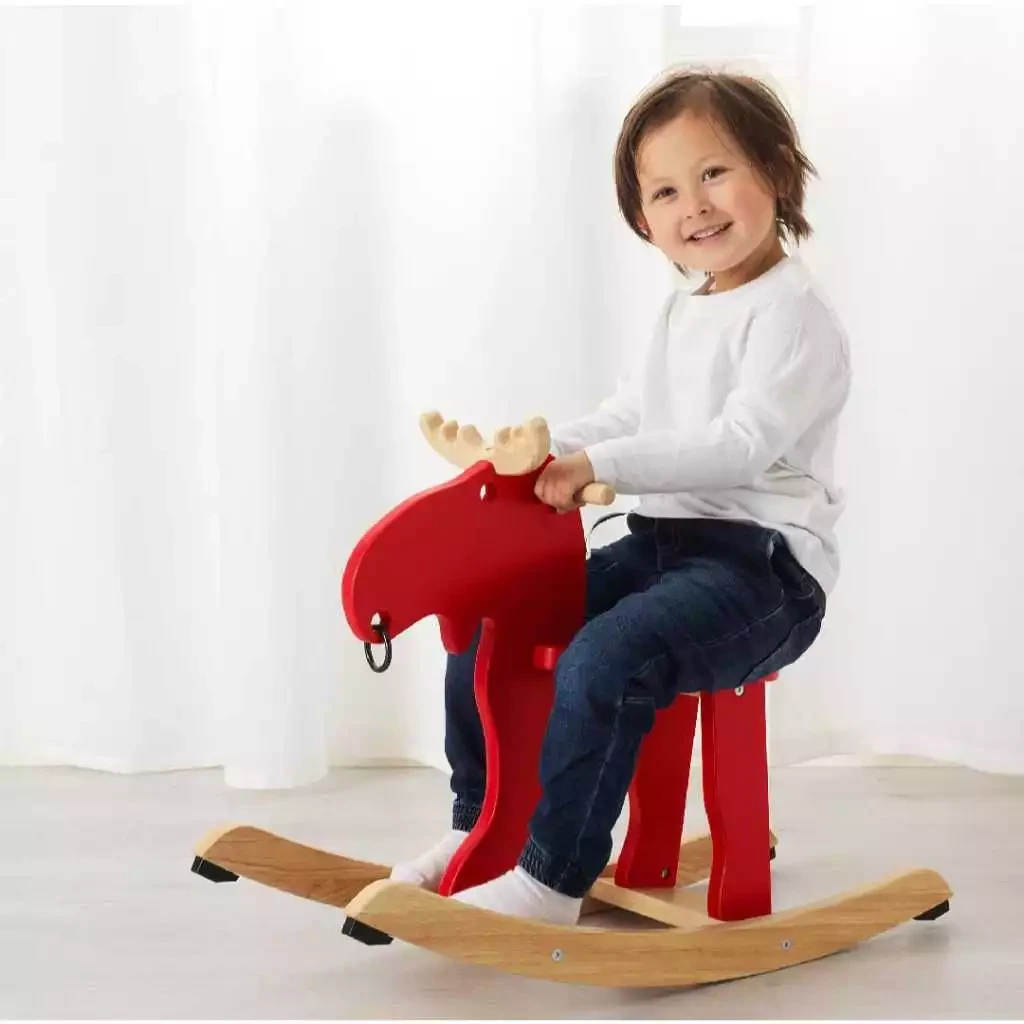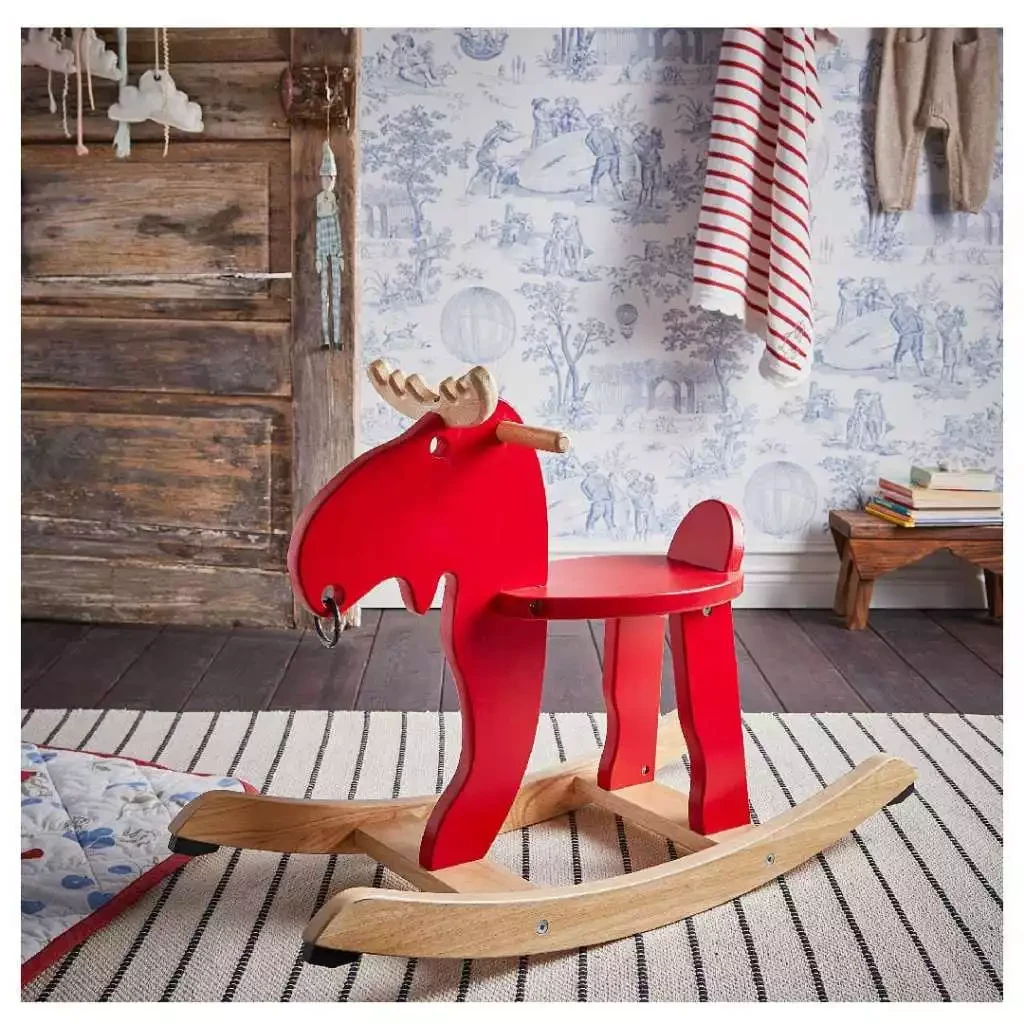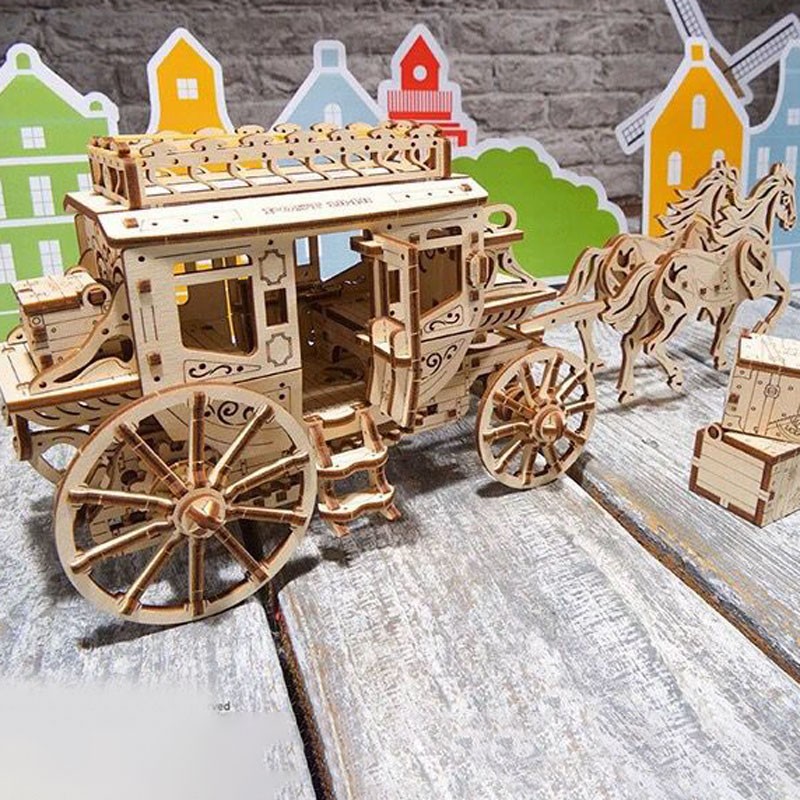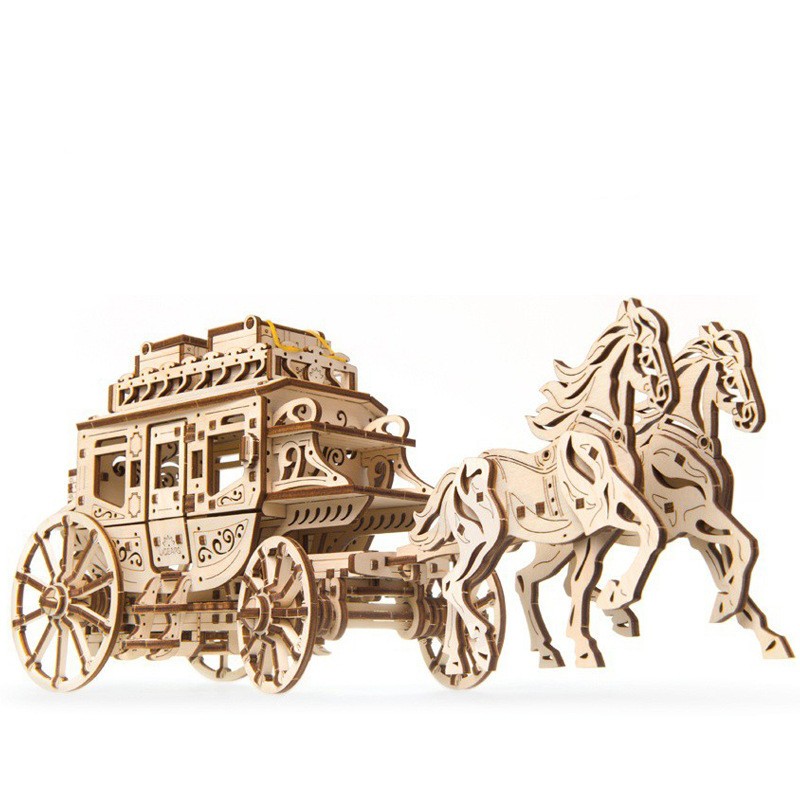Why Are Wooden Toys Better


Wooden Rocking Horse Children's Toy Wooden Swing Horse EKORRE
Gift Tree
Approx $221.65 USD

Original Anxiety Bookshelf
Gift Tree
Approx $60.72 USD
Normally: $199.99
Normally: $199.99
Why Wooden Toys Are Better: A Thoughtful Choice for Kiwi Parents
When it comes to choosing toys for our tamariki in New Zealand, there’s more at play than just fun. Parents today are making conscious decisions about the types of toys they bring into their homes. With concerns around plastic waste, toxic materials, overstimulation, and screen dependency, many Kiwi families are turning to a simpler, smarter alternative—wooden toys.
Wooden toys may seem nostalgic, even old-fashioned to some. But dig a little deeper and you’ll find a wealth of reasons why these toys are not only timeless but better for your child’s development, your home environment, and the planet. In this in-depth guide, we explore the key reasons why wooden toys are better and why more New Zealand parents are making the switch.
The Rise of Wooden Toys in New Zealand
The demand for wooden toys has grown significantly in NZ over the past few years. Driven by increased awareness of sustainability, minimalism, and child-led education models like Montessori and Steiner (Waldorf), wooden toys are now a staple in many Kiwi homes, childcare centres, and early learning environments.
You’ll find a wide range of beautifully crafted wooden toys in local stores and online marketplaces—from building blocks and puzzles to trains, kitchens, and role-play sets. But what’s behind this growing trend?
Let’s break it down.
The Developmental Benefits of Wooden Toys
Toys are more than just entertainment; they’re essential tools that help children learn, grow, and understand the world around them. Wooden toys offer a variety of educational and developmental benefits that can’t always be matched by their plastic or battery-operated counterparts.
Encouraging Imagination and Creativity
One of the biggest advantages of wooden toys is their simplicity. Without flashing lights, music, or pre-set programming, children are free to explore, invent, and create their own play narratives.
Whether it’s a simple set of wooden blocks or a miniature toy kitchen, wooden toys encourage open-ended play—where children decide how to use the toy, rather than being guided by buttons or sounds. This kind of imaginative play is crucial for cognitive development and problem-solving skills.
Supporting Fine Motor Skills and Coordination
Wooden toys often require more physical interaction than their plastic counterparts. Fitting shapes into puzzles, stacking blocks, threading wooden beads, or rolling a wooden car—all of these actions help strengthen hand-eye coordination and refine motor skills.
Many wooden toys are designed with purposeful movements in mind, aiding in developmental milestones that support everything from pencil grip to tying shoelaces.
Promoting Focus and Attention Span
Unlike loud, flashy toys that can overstimulate and distract, wooden toys promote calm, focused play. They don’t overwhelm the senses, making them ideal for helping young children learn to concentrate for longer periods.
For parents of neurodivergent children in New Zealand—including those with ADHD, sensory processing challenges, or autism—wooden toys can offer a more regulated play experience.
Boosting Cognitive Growth and Problem Solving
Wooden toys tend to emphasize classic learning concepts like balance, weight, spatial reasoning, logic, and sequencing. From building towers to matching puzzle pieces, children naturally begin to understand concepts like cause and effect, physics, and patterns through hands-on exploration.
Unlike digital toys, which often rely on repetitive input, wooden toys invite problem solving through touch and trial-and-error, building confidence along the way.
Wooden Toys and Montessori Principles in NZ
Many New Zealand early education centres incorporate Montessori or Steiner learning philosophies, both of which favour natural materials like wood for their educational value.
Montessori learning, in particular, encourages children to engage with toys and tools that are:
- Realistic and life-like
- Simple and open-ended
- Made from natural materials
- Designed to develop one specific skill at a time
Wooden toys check all these boxes. Whether it’s a wooden cash register for learning maths or a set of colour-sorted blocks for early sorting, Montessori-aligned wooden toys are widely available from NZ-based retailers.
Sustainability: Why Wooden Toys Are Better for the Planet
We can’t talk about wooden toys without mentioning sustainability. As more Kiwi families aim to reduce plastic use and live more environmentally conscious lives, wooden toys stand out as a clear winner.
Eco-Friendly and Renewable
Wood is a renewable resource—especially when sourced from sustainable forestry practices. Many wooden toy manufacturers in New Zealand use FSC-certified wood, ensuring that forests are responsibly managed.
In contrast, plastic toys are often petroleum-based, non-biodegradable, and harmful to the environment. Once broken or discarded, they sit in landfills for centuries.
Lower Carbon Footprint
Wooden toys typically have a smaller carbon footprint than mass-produced plastic toys, which are often manufactured offshore using energy-intensive processes.
Locally made wooden toys in NZ not only support the environment but also reduce emissions associated with overseas shipping. Choosing wooden toys made in New Zealand contributes to a more sustainable economy and a healthier planet for future generations.
Durable and Long-Lasting
Wooden toys are incredibly sturdy. Unlike many plastic toys that break easily, wooden alternatives can withstand years—if not generations—of play. This durability means fewer toys end up in the bin, reducing waste and saving money in the long run.
They’re also timeless in design, which means they’re less likely to go “out of fashion” like trend-based plastic toys often do.
Wooden Toys Are Safer for Babies and Toddlers
Safety is always top of mind for Kiwi parents. When it comes to materials that our babies and toddlers touch, chew, and play with daily, wooden toys offer peace of mind.
Non-Toxic and BPA-Free
Wooden toys, especially those finished with natural oils or water-based paints, are free from toxic chemicals like BPA, phthalates, and PVC. Parents in New Zealand are increasingly seeking out non-toxic options for teething babies and mouthing toddlers.
No Batteries, No Small Parts
Wooden toys are often battery-free and built with larger, chunkier parts. This reduces choking hazards and removes the need for constant supervision that battery-operated toys often demand.
Hypoallergenic and Easy to Clean
Natural wood resists bacteria and allergens better than plastic. A quick wipe-down with a damp cloth is usually enough to keep them clean, and they don’t attract dust or grime the same way plastic can.
Supporting Local Artisans and NZ Brands
Another reason why wooden toys are better in the New Zealand context is the opportunity to support local businesses. Across the country, talented woodworkers and artisans create handcrafted wooden toys that are truly unique.
Buying local means:
- Supporting small NZ businesses
- Reducing environmental impact
- Ensuring ethical labour practices
- Receiving high-quality, well-crafted products
Popular NZ wooden toy brands like The Wooden Toy Box, Nature’s Nest, and Wooden Wonderlands offer ethically made, beautifully finished toys that reflect Kiwi values and design aesthetics.
The Aesthetic and Lifestyle Benefits of Wooden Toys
Many Kiwi parents are choosing wooden toys not just for their function but for their form. Wooden toys are:
- Minimalist in design
- Visually calming
- Blending seamlessly into modern home decor
- Less cluttered and more intentional
They contribute to a calmer play environment and align with popular lifestyle trends like minimalism, slow living, and eco-parenting—values embraced by many New Zealand families.
Common Wooden Toys That Kiwi Families Love
Here are some of the most loved and widely used wooden toys in New Zealand homes:
- Wooden building blocks
- Shape sorters
- Puzzles and peg boards
- Balance bikes
- Stacking rings and cups
- Role-play sets (kitchens, markets, tool benches)
- Pull-along animals
- Abacuses and counting boards
- Wooden trains and tracks
- Music instruments like maracas and xylophones
These toys appeal to a broad age range, making them versatile and cost-effective for families.
Final Thoughts: A Better Toy for a Better Future
In a world full of plastic, flashy, disposable distractions, wooden toys are a breath of fresh air. They represent a return to simple, meaningful play—something that children instinctively crave and benefit from deeply.
For Kiwi parents seeking toys that are safe, sustainable, educational, and beautiful, wooden toys check every box. They support child development, respect the planet, and reflect the values of thoughtful, modern parenting in Aotearoa.
Whether you’re shopping for a newborn gift, building your own toy library, or transitioning to a more natural lifestyle, choosing wooden toys is a decision that delivers benefits for years to come.
Enter your content here





.jpg)









.jpg)





.jpeg)





.jpeg)



.jpeg)








.jpeg)



.jpeg)

.jpeg)

.jpeg)

.jpeg)




.jpeg)
.jpg)

.jpeg)






.jpeg)
.jpeg)




.jpeg)





.jpeg)


.jpeg)

.jpeg)

.jpeg)

.jpeg)







.jpeg)
.jpeg)
.jpeg)





.jpeg)



.jpeg)






.jpg)
.jpeg)









.jpg)


ulva-Logo.jpg)




.jpeg)



.png)















.png)























